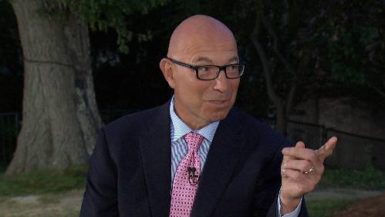The first time I heard of a sports psychiatrist was in the mid-’80s. My favorite college basketball team was getting hypnotized by one so they might shoot better free throws.
It didn’t work. They got housed in the opening round of the NCAA Tournament by one of those “directional schools.” You know the kind I mean – “Southwest Tech,” or something like that, team nickname: The Fighting Donkeys – champions of the Central Athletic Conference. My team was the one playing like the donkeys, and they missed countless free throws to boot. That shrink is picking beans in New Hampshire now, if I recall correctly.
The next time I heard of a sports psychiatrist was in 1991. Atlanta Braves pitcher John Smoltz would require his doctor to be seated behind home plate, where Smoltz could see him every pitch. The story was Smoltz couldn’t pitch unless he had a visual on his human security blanket. It worked; he helped pitch the Braves into several World Series during the ’90s and is a strong candidate for the Hall of Fame.
If you think that sounds like witch-doctory, never forget there is one inalienable truth to which every athlete adheres: they’ll do everything they can to gain an edge. After all, million-dollar talent is useless if you have a ten-cent head in the clutch. Why not take extra precautions to keep your head straight and maximize performance? Besides, the highs and lows of sports can drive you crazy, if you’re weak. Just ask Phil Mickelson about Winged Foot.
Over the years, as sports leagues have grown into a trillion dollar industry, sports psychiatry has also become a booming business. Franchises in all four major sports, Olympians, college teams, even golfers utilize sports psychiatrists. There are even several on staff at the David Leadbetter Golf Academy in Bradenton, Florida.
If you’ve ever been curious about what sports psychiatrists work on with their multi-millionaire clients, then pick up a copy of Finding Your Zone by Dr. Michael Lardon. Dr. Lardon, the associate clinical professor of psychiatry at U.C. San Diego works with countless PGA TOUR members, NFL stars, and Olympic athletes. In his new book, he shares his professional advice and secrets that have worked for such greats as David Duval and Rich Beem.
“Regardless of which sport – golf or anything else – there are basic principles that are common to all the great performances of champion professional athletes,” Lardon explained in an interview with A Walk in the Park. “We see these principles over and over again, and they are not rocket science. Tiger Woods, for example, shows what discipline, practice, and determination can achieve. Well anyone else can succeed using these principles, not just athletes.”
In his book, Lardon describes ten different core lessons so that anyone – athlete, businessperson, or student – can employ to achieve peak performance in any aspect of life. “I wanted to share these concepts with the general public because in my clinical life as a psychiatrist, I have found sports to be a microcosm of life. The same concepts that breed champions also are found in great businessmen, teachers, soldiers, even recovering drug and alcohol addicts.”
Describing “The Zone” as “an optimal state of mind in which anyone can achieve their personal best,” Lardon enumerates how countless champion athletes use simple mind-over-matter mantras to discipline themselves to overcome adversity, stay focused. You’ve heard a lot of these before: be prepared to overcome the odds, transform desire into will, stay in the moment, et cetera.
Now before you dismiss this as a lot of hippie-trippy mumbo-jumbo, remember that it frequently works. After all, it was Ian Fleming, creater of 007, who said “dissipation of energy, fragmentation of vision, loss of momentum, lack of follow through – these are the vices of lesser people.” (Actually it was his archetypal villain, Dr. No, for those of you scoring at home. It worked for him; dude had a massive undersea mansion with his own laboratory and rocket launching pad. He could run a small government from there.)
“Correction, Mr. Bond,” he interjected menacingly. “I could run a large government from here.”
Whatever. The point is the race goes to the smart just as often as the swift. Moreover, the book is golf-centric, offering solid advice like:
- Visualize the shot you want every time before executing it;
- Hit the shot without any doubt of ambivalence, (“commit to the shot” as golfers say); and
- Back away if you get distracted or doubt yourself.
OK, good stuff. Lardon also has some intriguing ideas to help players overcome adversity. Two of the more interesting ones are “visualize placing the disturbing thought or emotion on a leaf and letting it float downstream,” and “if angry, imagine holding a hot coal, and then dropping it.”
Those could actually work; they are soothing thoughts. He left out my favorite, though: “If angry, take your opponent’s bottom lip, and pull it up over his head.” But I digress…
All jokes aside, this is Dr. Mike Lardon who wrote this book, and even though it reads a little like a self-help book, (which is what it is), he’s unquestionably one of the leading authorities in this field. The greatest champions in all major sports work with him, with astonishing results. Lardon tells many war stories: good advice that he gave to clients, and then details the successes they enjoyed. It’s a quick and easy read, has a couple juicy moments for the celeb-struck, and inspires the rest of us to get cracking and be worthy of our heritage.
After all, if you put your mind to it, stay focused, and work hard and smart enough, maybe you could be the next global super villain. I hear it’s quite the life: underwater mansions, heavy arms, world domination plots, and plenty of goons. As for me, I’ll settle for that cool car with the oil slick, machine gun headlights, and emergency ejector seat – on the passenger side, of course. No, Nancy, you can’t drive it.
You can order Dr. Lardon’s book here.




